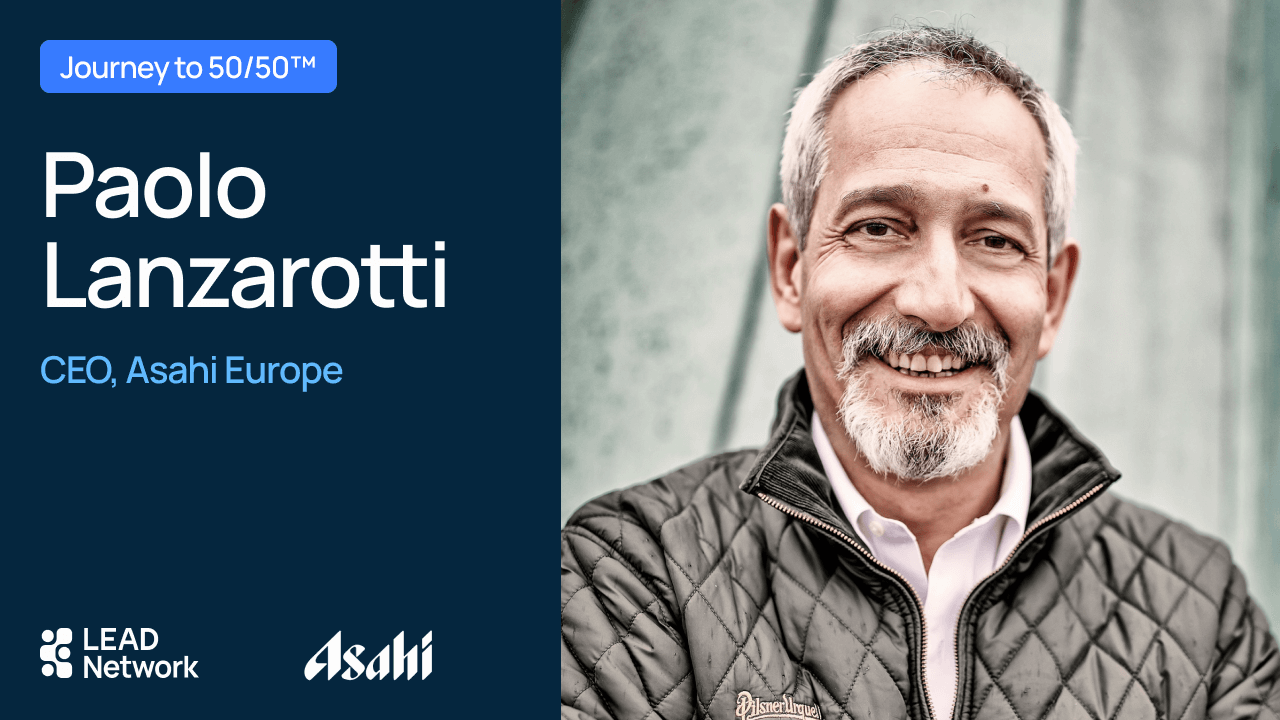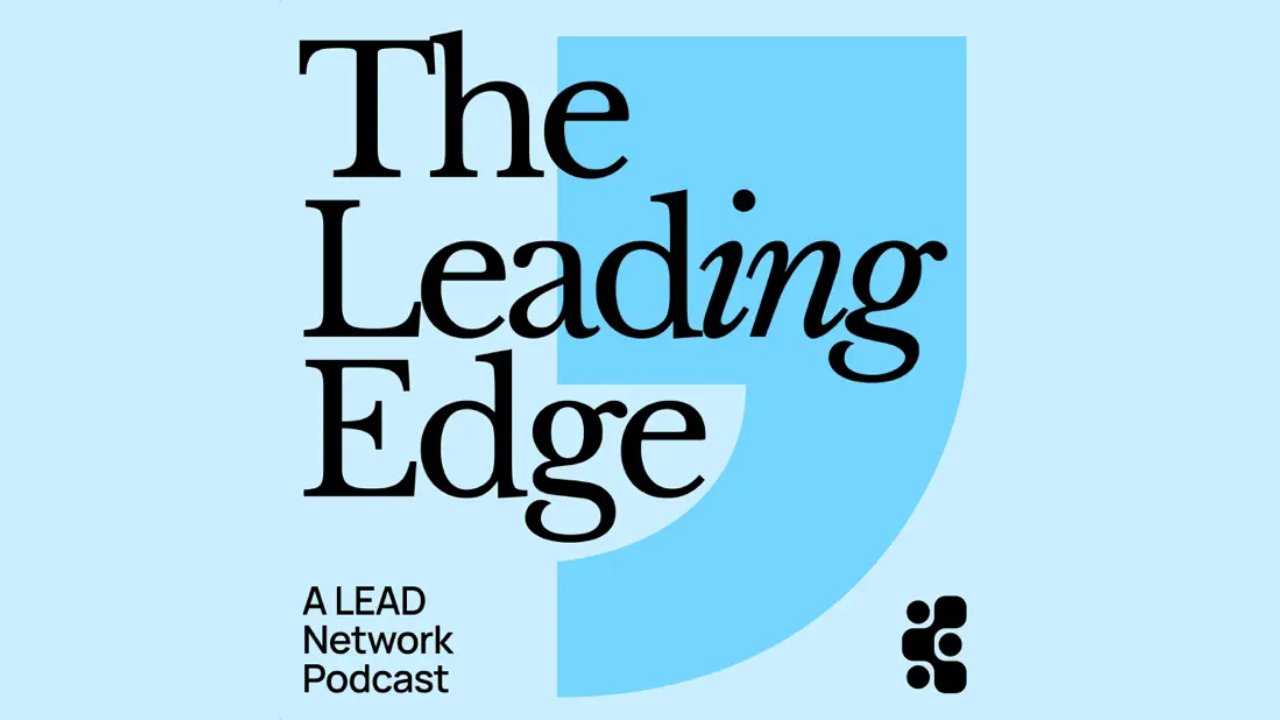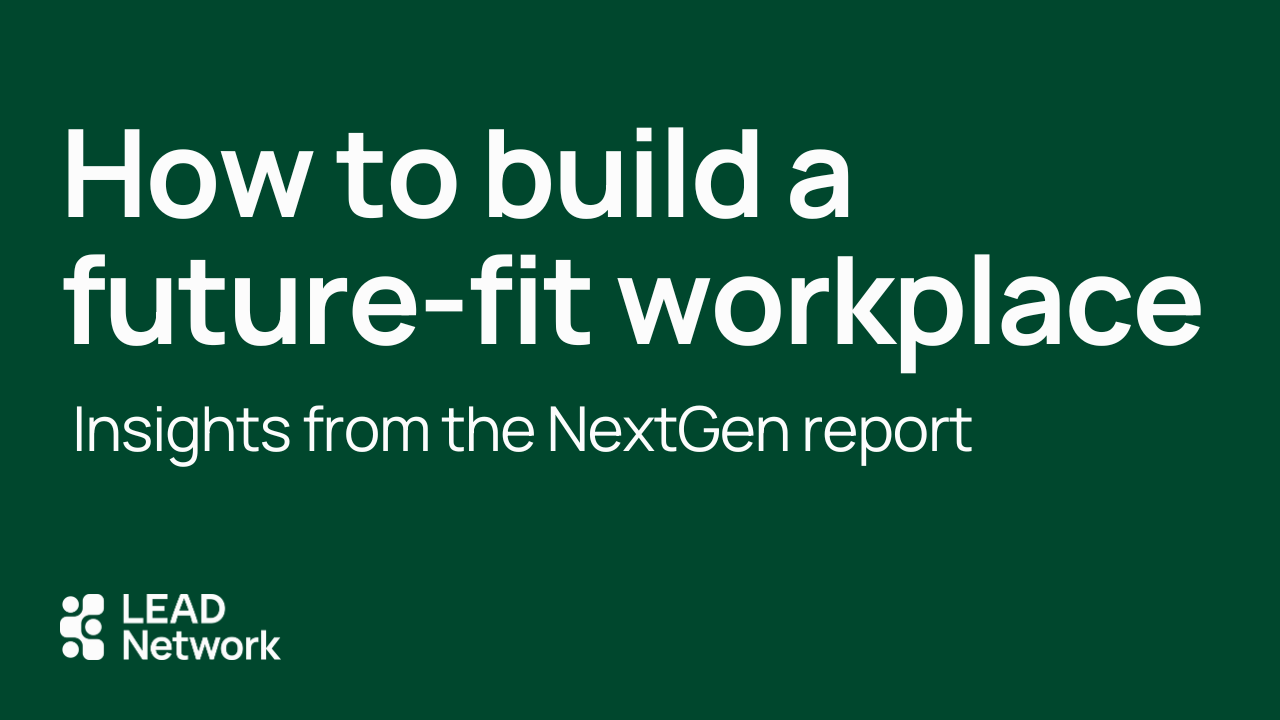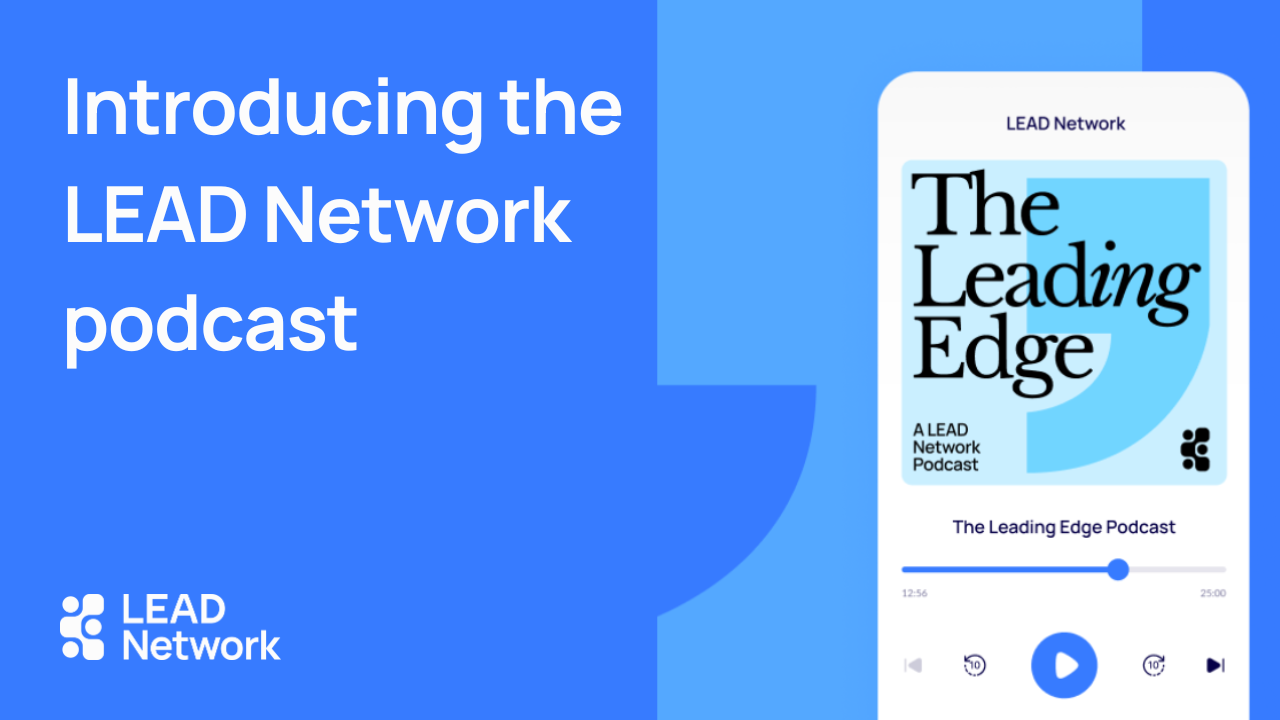Paolo Lanzarotti of Asahi: If you’re not listening, you’re not leading

The Journey to 50/50 series is part of our commitment to sharing best practices among industry leaders. It aims to capture top-level insights for CEOs, by CEOs, to inspire those who are traveling a similar path.
Pushbacks can be gold dust
When we joined LEAD Network one of the first things I did was sign the CEO Pledge.
I remember people questioning me on whether I believed quotas could change culture. I said that I thought quotas were wrong, but that what gets measured gets managed, so KPIs must be part of our toolkit.
Those moments of pushback were gold dust: they made me engage with people who were curious or sceptical. If I could feed their curiosity, that was job done. And if I could help them get over their scepticism, that was job done too.
The early days of putting targets out there and frankly some negative reactions were really useful moments of interaction. At the Paris CEO Roundtable, I was surprised to learn some members hadn’t signed the Pledge. If we are ready to make public commitments on sustainability, why would we not be willing to commit to diversity targets?
Young people are vocal, and if we don’t listen and act, they will disengage.
Why we can’t afford to ignore NextGen
Why we can’t afford to ignore NextGen
The NextGen topic, which LEAD Network has recently begun to focus on, is an issue that was already on my mind. The data presented to us at the CEO Roundtable in Paris last October was horrific. Talk about a burning platform.
We saw how female NextGens view us as an industry: they expect leaders to act the same way they talk, and are ready to call us out if we don’t. I find it strange that there’s reticence to take this issue on. The data may not apply to all companies everywhere, but intuitively they feel right.
Young people are vocal, and if we don’t listen and act, they will disengage. We are in a war on talent, and surely this is a way of retaining good, passionate people. I’m looking forward to the next LEAD conference, in Düsseldorf – to sit down and engage not just with the NextGen chapter but with other CEOs on this issue.
Become a sounding board
I recently volunteered to co-chair the new NextGen/CEO Connect Board, alongside Olena Neznal [MD Northern Europe, Diageo]. It was instinctive to say I would like to be part of helping to steward this group forward.
The first thing Olena and I asked was what role the NextGens wanted us to play. They were surprised we wanted to be sounding boards and to learn, and they picked up the ball and ran with it. At first everyone was finding their feet, and then the output was exponential.
There is clarity of purpose and the tools that are being developed are going to be very useful.
Make time for self-reflection
One of the tools to come out of the NextGen project is a self-assessment questionnaire. When you do something like that, you tend to see yourself as close to perfect as modesty allows. I completed it once, then I had a think and did
it again.
Leaders need to make time to reflect on themselves and their own leadership styles in order to be better leaders of others.
Show humility
At Asahi, we are working towards gender parity across our management and senior executive teams by 2030, and today we are at 26%, up from 19% in 2020. However advanced you are on the continuum of building a truly inclusive culture, you are never at the end of the journey. So approach the subject with a healthy dose of humility and don’t believe your own PR.
Powerful ideas
Across the business we have self-generating employee groups. For example, in Italy there is a female leaders’ group called BEpowER. In the space of a few months they went from not really knowing each other to having a clear idea of what they want to tackle. I met them recently and we had a 45-minute discussion on menstrual justice. I don’t know in what forum we’d have had that discussion if not there.
Share responsibility for DEI
In each of our 10 countries or business units we have set up DEI committees which are cross-functional and chaired by business leaders, not by HR. That is over 100 leaders who champion, own and drive DEI locally. We also have a regional AEI DEI committee, with each country and function represented. The aim is to build an inclusive environment, so “we can all shine as we are”.
Joining LEAD Network was the catalyst for this; it has all happened within 12-18 months and it has been revealing and impressive to see how the power of people can impact the business.
To shadow or not to shadow?
At the CEO Roundtable in Paris, there was a conversation about having a shadow Board for NextGen.
At Asahi we haven’t done that because it felt like it wouldn’t be authentic – it would be difficult to have the issues we discuss as an executive committee being discussed properly and fully by a shadow Board. So instead we have set up a GenNext Youth Council. It is a self-governing group, it sets its own objectives, defines its own agenda.
We agree criteria for sitting on the council and tenure, and there is a process of self-nomination. It is in the very early stages, but my sense is that it will be similar to the LEAD NextGen Chapter, allowing these younger voices to be heard and tackling the issues they choose to pick up. It will act as a foil or mirror for executive decision making.
Make sure training doesn’t get lost in translation
By the end of 2023 we will have had almost 200 leaders going through LEAD Network’s Inclusive Leadership Programme, which we run ourselves internally. We have held this as both a regional programme and locally in country. Poland, for example, are already on their second iteration, in the local language.
In a lot of our markets, English is less used, so we are also looking at translating the training content in a way that’s meaningful for a Romanian, Czech or Hungarian audience.
DEI is too important to get lost in translation.
Share this article
More articles
June 10, 2024
June 10, 2024


